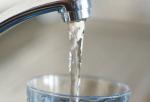Water restriction status signs are being installed in high-profile locations in Whakatane and Ohope to remind residents of the need to conserve water during the dry summer months.
Whakatane District Council Infrastructure General Manager Tomasz Krawczyk says voluntary reductions over the coming weeks may help to avoid the possibility of formal restrictions on hose and sprinkler use later in the summer.
"The river flow is steadily falling and although the current situation is not critical, salinity is now reaching our water treatment intake on high tides, which restricts the amount of water we can extract at the Water Treatment Station," he says.
"We've previously addressed that by extending our emergency intake a further 500 metres upstream and increasing the pumping capacity, but if the river level continues to fall, it's possible the salinity situation could worsen to a point where it also affects water quality at the emergency intake."
While there is no immediate threat, Mr Krawczyk says it's prudent to start voluntary water use reductions, which is the first stage of the Council's three-stage restriction process.
If the situation worsens, stage two would see the current blue 'voluntary conservation' signs replaced by orange signs indicating that hoses and sprinklers can only be used on alternate days, between the hours of 6:00 am - 8:00 am and 6:00 pm - 8:00 pm.
The third stage, marked by a red water restriction status sign, would see a total ban on all hose and sprinkler use.
"We hope that restrictions can be avoided, but that's entirely dependent on the river flow and the contributions households and businesses can make through voluntary reductions in their water usage," Mr Krawczyk says.
Simple conservation tips include:
- Bucket-wash cars or boats, where possible
- Avoid refilling or topping-up swimming pools
- If you know you have leaking taps, fix them now
- Flush toilets sparingly
- Avoid using your bath and cut your shower time down as much as possible
- Turn taps off when the water is not being used (while cleaning teeth, or scrubbing vegetables, for example).
Regular information will be provided to keep consumers up-to-date with consumption trends and the water treatment and storage situation.
Source: Whakatane News

